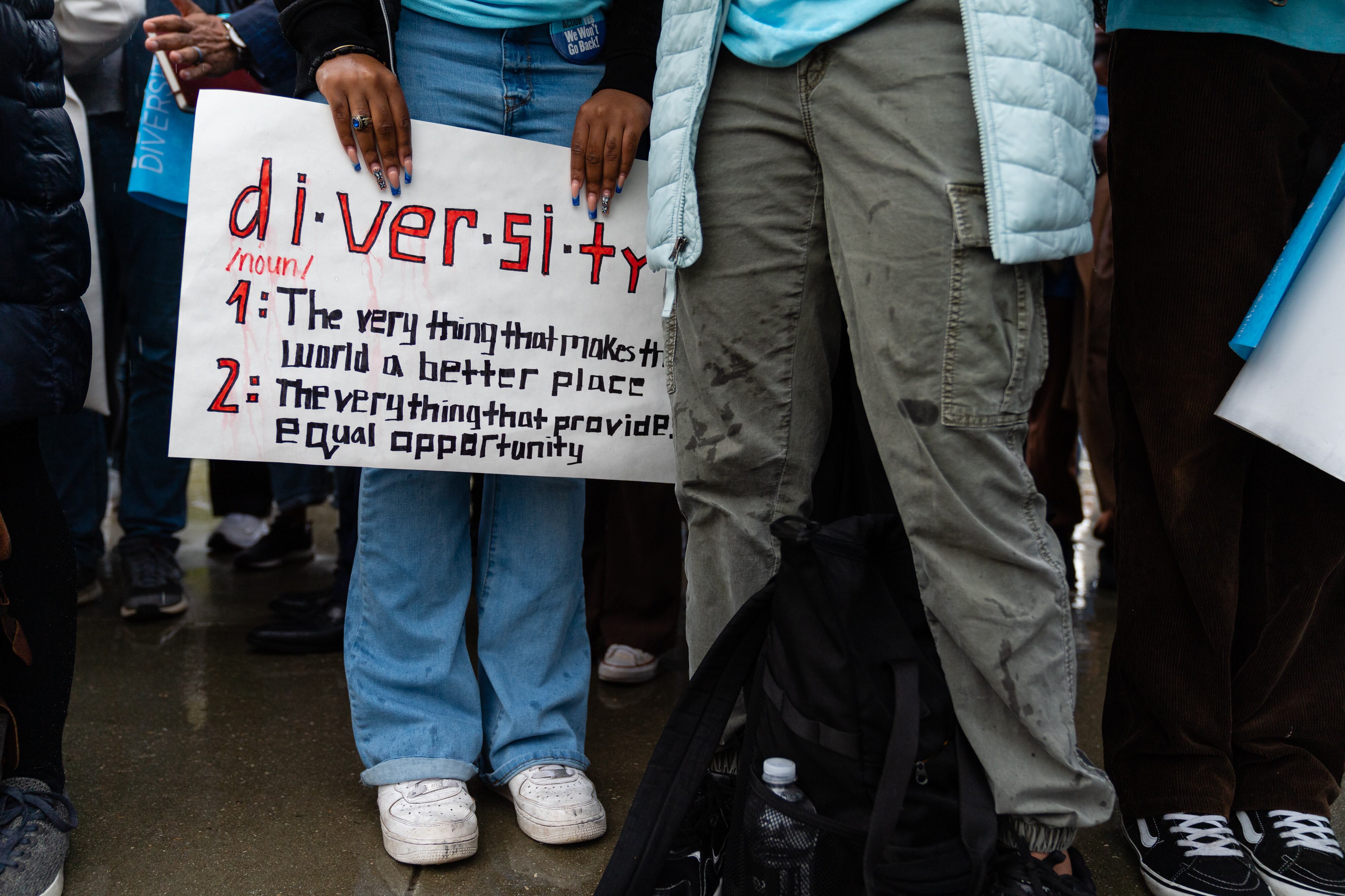Sign up for Chalkbeat’s free weekly newsletter to keep up with how education is changing across the U.S.
Schools do not have to abide by or certify compliance with the Trump administration’s contested interpretation of civil rights law laid out in February, after a federal judge overturned the policy and related guidance on Thursday.
In an opinion that applies to schools nationwide, U.S. District Judge Stephanie Gallagher wrote that the Trump administration had failed to follow the proper administrative procedures to make such a sweeping change, and that both a Feb. 14 Dear Colleague letter issued by the Education Department and a related certification requirement were unlawful.
Multiple lawsuits against the rules already had resulted in a patchwork of injunctions. However, Gallagher’s decision will likely bring some relief to many school leaders and state education officials who had worried they would lose federal funding if they did not certify compliance with the Trump administration’s interpretation of federal anti-discrimination laws — and that complying could mean dropping commonly used diversity, equity, and inclusion practices.
“The government did not merely remind educators that discrimination is illegal: it initiated a sea change in how the Department of Education regulates educational practices and classroom conduct, causing millions of educators to reasonably fear that their lawful, and even beneficial, speech might cause them or their schools to be punished,” Gallagher wrote.
The Feb. 14 guidance and certification requirement had been put on hold as three separate lawsuits worked their way through the courts. That included the case brought by the American Federation of Teachers and others that led to the Thursday ruling, as well as lawsuits from a coalition of state attorneys general and the Legal Defense Fund on behalf of the NAACP.
Randi Weingarten, the head of the AFT, said in a statement on Friday that the judge’s ruling represented “a huge win for students, families and educators” and a rebuke of the government’s attempt to “chill teachers’ duty to create safe and welcoming classrooms where critical thinking is valued and history is presented in an open and honest way.”
In an email, a spokesperson for the Education Department said the department was disappointed in the judge’s ruling, but that getting rid of the guidance “has not stopped our ability to enforce Title VI protections for students at an unprecedented level,” referring to the federal law that bans discrimination based on race, skin color, and national origin in schools.
“The Department remains committed to its responsibility to uphold students’ anti-discrimination protections under the law,” the spokesperson wrote.
The spokesperson did not respond to a question about whether the Trump administration intends to appeal the decision.
The Trump administration continues to advance its opposition to DEI on several fronts. It is conducting civil rights investigations into states and school districts over practices ranging from the launch of a Black student success plan in Chicago to the use of race-based affinity groups for staff and students. Officials have slashed federal grants designed to expand opportunities for students of color or that were awarded with student diversity in mind.
And Attorney General Pam Bondi recently issued a memo to all federal agencies with similar intentions as the Education Department’s now-defunct guidance, noting that DEI programs can be discriminatory and that relying on certain race-neutral criteria, such as “cultural competence,” “lived experience,” or geography, can violate federal law if it’s used a proxy for a protected characteristic, like race, to create advantages for some people.
Gallagher, who was nominated to her position by President Donald Trump during his first term, did not weigh in on whether the Education Department’s DEI policy was “good or bad,” but said that the agency could not go “leapfrogging” over important procedures in federal law.
The judge held that the Education Department’s guidance and certification requirement amounted to new legislative rules — not a restating of existing federal laws and requirements, as the Trump administration has said — and that the Education Department should have explained why it changed course and offered a public notice and comment period to give schools and others adequate time to weigh in.
The department’s Feb. 14 guidance also interprets the Supreme Court ruling that bars affirmative action in higher education admissions “far more broadly,” the federal judge wrote, to include much more than “preventing using race as a factor in ‘zero-sum’ opportunities like admissions, hiring, promotions, or awards.”
“The administration is entitled to its own views, including on how court cases and laws should be interpreted,” Gallagher wrote. “But it is not entitled to misrepresent the law’s boundaries, and must at a minimum acknowledge and consider the relevant legal framework as it is. It cannot blur the lines between its viewpoint and existing law.”
Kalyn Belsha is a senior national education reporter based in Chicago. Contact her at kbelsha@chalkbeat.org.







